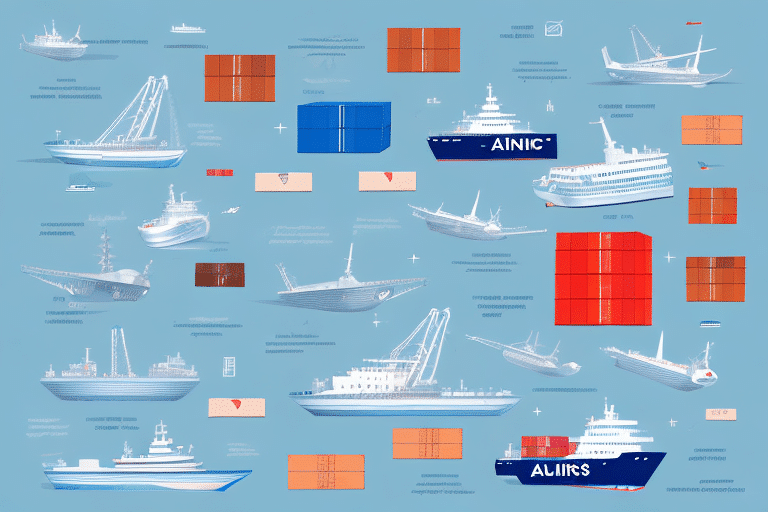Choosing the Best Shipping Carrier: Factors to Consider for Your Business
As a business owner, selecting the right shipping carrier is a pivotal decision that can significantly influence your bottom line. With numerous options available in today's market, determining the best carrier to partner with for your business's success can be daunting. This article delves into the various factors you need to consider when selecting a shipping carrier, ensuring you make an informed choice tailored to your specific needs.
Evaluating Carrier's Capacity and Resources
Assessing a carrier's capacity and resources is fundamental, especially if you handle large or heavy shipments requiring specialized equipment. A carrier must possess the necessary resources and capabilities to manage your shipments effectively, preventing potential losses in time and money. Key factors to consider include:
- Fleet Size: A larger fleet can indicate reliability and the ability to handle high shipment volumes.
- Available Routes: Ensure the carrier operates in regions critical to your business operations.
- Delivery Times: Faster delivery times can enhance customer satisfaction and competitiveness.
Assessing Staffing Levels and Expertise
Beyond resources, the expertise and staffing levels of a carrier's employees are crucial. For valuable or fragile items, it's imperative that shipments are managed by seasoned professionals. Evaluate the carrier's staff by considering:
- Training Programs: Comprehensive training ensures staff are well-equipped to handle diverse shipping challenges.
- Certifications: Relevant certifications can indicate a carrier's commitment to quality and standards.
- Experience: Years of industry experience often correlate with reliability and proficiency.
Analyzing Facilities and Equipment
The condition and sophistication of a carrier's facilities and equipment significantly impact shipping reliability. Ensure that:
- Facilities: Warehouses and sorting centers should be clean, secure, and well-maintained to safeguard your items.
- Equipment: Modern and well-functioning vehicles, sorting systems, and tracking technologies are essential for efficient operations.
For instance, advanced tracking systems can enhance shipment visibility and reduce delivery times, contributing to overall operational efficiency.
Considering Environmental Impact
With growing environmental concerns, the sustainability practices of a shipping carrier are becoming increasingly important. Carriers that prioritize eco-friendly initiatives can not only reduce your business's carbon footprint but also enhance your brand's reputation. Key aspects to consider include:
- Eco-friendly Packaging: Use of recyclable or biodegradable materials minimizes environmental impact.
- Energy-efficient Facilities: Green buildings and energy conservation measures reflect a carrier's commitment to sustainability.
- Alternative Fuels: Utilization of electric or hybrid vehicles reduces greenhouse gas emissions.
According to a UNEP report, implementing sustainable practices in logistics can significantly lower carbon emissions, aligning with global climate goals.
Reviewing Customer Service and Support
Exceptional customer service and support are vital for a seamless shipping experience. When evaluating carriers, consider:
- Communication Channels: Multiple avenues like phone, email, and live chat provide flexibility and accessibility.
- Responsiveness: Quick and effective responses to inquiries and issues enhance reliability.
- Tracking and Monitoring: Advanced tracking services allow you to monitor shipments in real-time, ensuring transparency.
Effective customer support can mitigate potential issues, fostering trust and long-term partnerships.
The Importance of Tracking in Logistics
Tracking capabilities are indispensable when selecting a shipping carrier. Real-time tracking offers visibility into your shipments from departure to delivery, enabling proactive management of potential delays or issues that could affect customer satisfaction.
Benefits of Real-Time Tracking for Shippers and Carriers
Real-time tracking systems provide numerous advantages:
- For Shippers: Enhanced visibility allows for better inventory management and informed decision-making.
- For Carriers: Improves customer service by providing accurate delivery estimates and reducing instances of lost shipments.
According to a Supply Chain Digital article, businesses leveraging real-time tracking experience a 20% increase in on-time deliveries.
Choosing the Right Tracking Technology for Your Business Needs
Selecting appropriate tracking technology is crucial to meet your business requirements. Available options include:
- RFID Systems: Useful for inventory management and large-scale shipments.
- GPS-based Systems: Offer precise location tracking and are ideal for real-time updates.
- IoT Devices: Provide comprehensive data on shipment conditions, such as temperature and humidity.
Evaluate your specific needs, budget, and the level of detail required to choose the most suitable technology. Balancing cost with functionality ensures you receive maximum benefits without overspending.
Real-time tracking technology has transformed the logistics industry by providing unparalleled visibility and control over shipments. Businesses can optimize supply chain operations, reduce costs, and enhance customer satisfaction by utilizing these advanced tracking systems. Furthermore, proactive management of potential disruptions, such as delays or route deviations, is facilitated, ensuring your business remains competitive and responsive to customer demands.
Cost Considerations and Pricing Structures
Understanding the pricing structures of shipping carriers is essential for budget management and cost optimization. Factors influencing costs include:
- Base Rates: Standard charges based on weight, dimensions, and distance.
- Additional Fees: Costs for expedited shipping, fuel surcharges, and special handling.
- Volume Discounts: Reduced rates for high-volume shipments, benefiting businesses with consistent shipping needs.
It's advisable to request detailed quotes and analyze the cost-effectiveness of each carrier to ensure alignment with your financial objectives.
Reliability and Reputation of the Carrier
A carrier's reliability and industry reputation are critical indicators of their service quality. Consider the following when assessing reputation:
- Customer Reviews: Feedback from other businesses provides insights into the carrier's performance and reliability.
- Industry Certifications: Certifications like ISO standards reflect a carrier's commitment to quality and best practices.
- Years in Operation: Established carriers often have proven track records and extensive industry experience.
Researching and verifying a carrier's reputation ensures you partner with a dependable provider that meets your business's standards.
Technological Integration and Innovation
Modern shipping operations benefit greatly from carriers that embrace technological innovation. Key considerations include:
- Integration Capabilities: Seamless integration with your existing systems, such as ERP or inventory management software, enhances operational efficiency.
- Automation: Automated processes reduce manual errors and speed up shipping operations.
- Data Analytics: Access to detailed analytics helps in making informed strategic decisions.
Carriers investing in technology can offer enhanced services, such as predictive analytics and machine learning-driven optimizations, which can provide your business with a competitive edge.
Conclusion
Selecting the right shipping carrier involves a comprehensive evaluation of multiple factors, including capacity and resources, staffing expertise, facilities and equipment, tracking capabilities, cost structures, reliability, and technological innovation. By meticulously assessing each of these areas, you can identify a carrier that aligns with your business's specific needs and objectives.
Additionally, considering the environmental impact of your shipping carrier is not only beneficial for the planet but also resonates with eco-conscious customers. Opting for carriers that implement sustainable practices, such as using alternative fuels or minimizing packaging waste, can enhance your brand's reputation and appeal.
Taking the time to research and evaluate your shipping options ensures that your business operates efficiently, maintains high customer satisfaction, and remains competitive in a dynamic market. Remember, a well-informed decision regarding your shipping carrier is a cornerstone of your business's success.






















